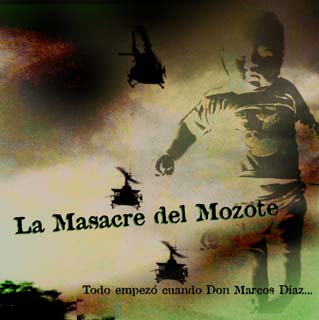Latin America
Related: About this forumRevoking Amnesty for Death Squads
May 16, 2013
Revoking Amnesty for Death Squads
El Salvador finally confronts the ghosts of its past.
BY Angelina Godoy
Twenty years ago in March, the government of El Salvador passed an amnesty law that granted immunity from prosecution to those responsible for crimes committed before and during the country’s civil war, which raged from 1980 to 1992. This law was promulgated only five days after a U.N. truth commission reported that an estimated 75,000 civilians had lost their lives in the conflict, more than 90 percent of them at the hands of the U.S.-backed Salvadoran military and death squads.
Ostensibly intended to let the country move forward without being mired in the past, the law not only protected war criminals from prosecution but also precluded any investigation into their crimes. As a result, for two decades the law has thwarted justice for Salvadorans, forcing thousands to live without even the most basic knowledge about the fates that befell their loved ones.
Fortunately, this is starting to change. Last year, President Mauricio Funes apologized publicly for the massacre at El Mozote, calling it “the worst massacre of civilians in contemporary Latin American history.” That incident, one of countless mass killings that occurred during the war, took place on Dec. 11, 1981, when the Atlacatl Battalion—an elite Salvadoran army unit trained by the U.S. Army at the School of the Americas in Fort Benning, Ga.—killed more than 900 people, hundreds of them children. In December 2012, the Inter-American Commission on Human Rights ruled against the government of El Salvador in the El Mozote case, declaring that the amnesty law could no longer be used to deny justice to the victims of such acts.
In March, the Instituto de Derechos Humanos at El Salvador’s Universidad Centroamericana and the University of Washington’s Center for Human Rights convened legal advocates from around the world in San Salvador to demand justice in cases of wartime atrocities. Forty-four criminal cases were presented to the Salvadoran justice system. The victims include a labor leader whose wife and 11-year-old daughter were “disappeared” while he was tortured behind bars as a political prisoner; survivors of rural massacres, many of which erased entire communities from the landscape; and an adult daughter of two political activists who grew up never knowing the reasons for her parents’ disappearance. Many are now coming forward for the first time.
More:
http://inthesetimes.com/article/14990/revoking_amnesty_for_death_squads/
[center]
 [/center]
[/center]
‘On This Day’ 1981: U.S.-Trained Atlcatl Battalion Massacres 900 Salvadoran Villagers at El Mozote
December 11, 2010 by Brett Wilkins in Latin America/Caribbean, On This Day, The Best of Moral Low Ground, U.S. Government, War, War Crimes & Atrocities with 2 Comments
~snip~
On December 10, 1981 the Atlacatl Brigade arrived at the village of El Mozote. Supremely confident with their American training, their American helicopters and their American guns, the Atlacatl soldiers met no resistance as they entered the village. The entire hamlet was ordered out into the town square where the terrified peasants were forced to lie face down on the ground as soldiers beat, robbed and interrogated them. Then everyone was told to return to their homes and remain there or be shot. Happy to be alive, the people of El Mozote quickly obeyed.
Just before dawn the following day the villagers of El Mozote were marched back out into the village plaza where they were bound and blindfolded. The men were all forced into the church, the women and children into a house across the street. While the women were interrogated, machete-wielding soldiers began beheading the men. Anyone who attempted to escape was shot dead. Rufina Amaya, one of the only survivors of the massacre, cradled her young son as she watched her husband and another man gunned down by Atlcatl soldiers as they tried to escape. The soldiers then proceeded to finish the wounded men off by lopping their heads off with machetes. Other villagers were taken to an area by the schoolhouse where they were forced to lie face down before being executed.
Around noon, the young women and little girls were torn from their mothers’ arms and dragged up a nearby hill where they were savagely raped by the troops. Some laughed and joked as they raped and murdered. All the while, Atlcatl soldiers kept returning to the house to drag out more victims. Soon there were mostly just crying children left.
Then it was Rufina’s turn. “I was crying and struggling with the soldiers because I had my baby on my chest. “It took two soldiers to pull the baby from me,” she told investigative journalist Mark Danner, whose New Yorker article and book contain arguably the most authoritative English language account of what became known as the El Mozote massacre. Rufina was marched with a group down a blood-soaked street past the heaped bodies of her murdered friends and neighbors. When they realized what was about to happen to them, the women panicked. An Atlcatl soldier comforted them with these words: “Don’t cry, women. Here comes the Devil to take you.”
More:
http://morallowground.com/2010/12/11/on-this-day-1981-u-s-created-salvadoran-battalion-rapes-massacres-1000-women-children-elderly-at-el-mozote/
Catherina
(35,568 posts)"In December 2012, the Inter-American Commission on Human Rights ruled against the government of El Salvador in the El Mozote case"
That's excellent news so I wonder how this could affect Guatemala, if the survivors here could get a similar ruling for the Amnesty Clause the Military here inserted into the Peace Accords. The chief representative of the military for the Peace Accords was lol, Perez Molina himself.
Guatemala passed a similar law also that was hastily pushed through. Interesting times these are.
